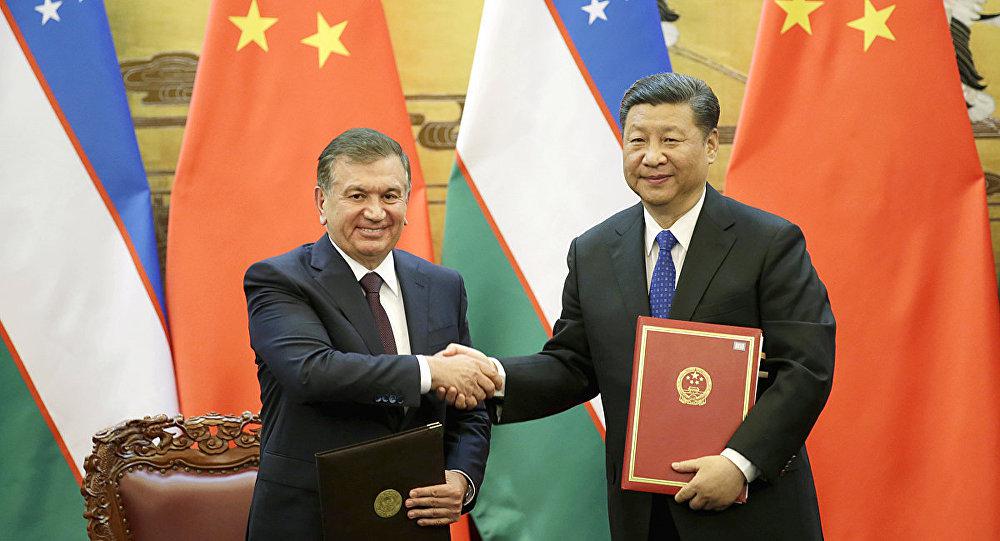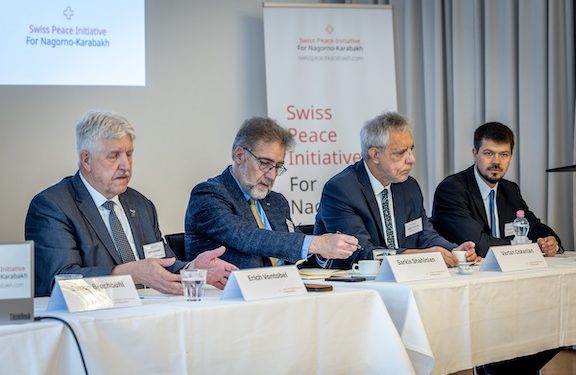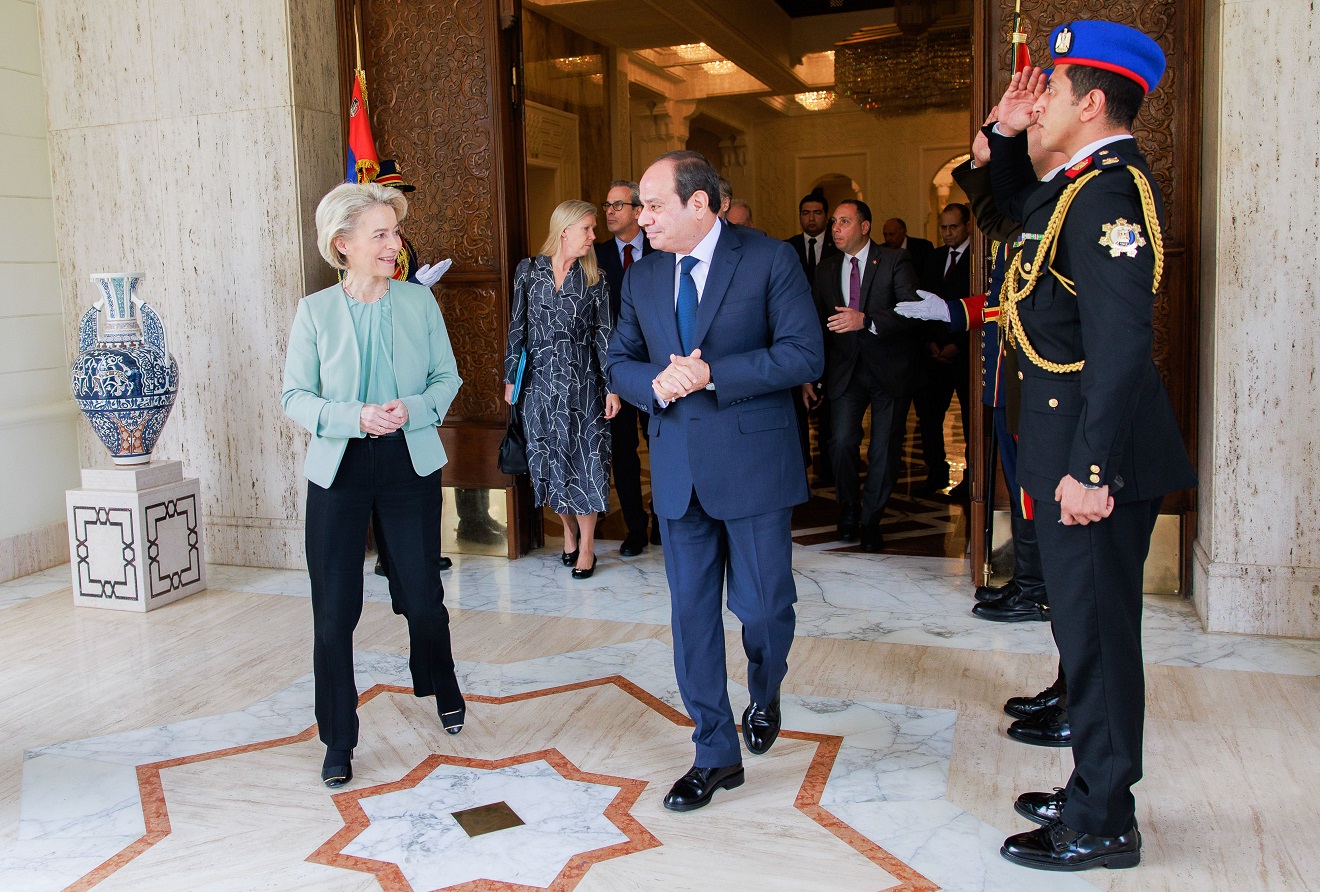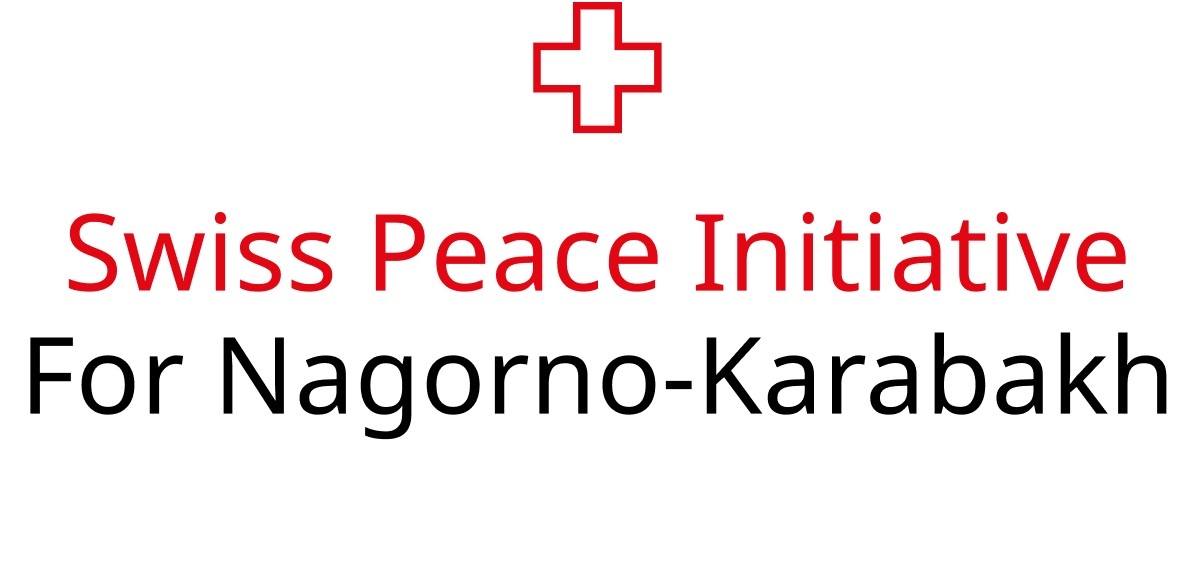This is the English translation of a Turkish language article that was originally published by AVİM on 26 February 2024.
A “Comprehensive Strategic Partnership Agreement” has recently been signed between China and Uzbekistan following President of Uzbekistan Shavkat Mirziyoyev’s visit to China. The statement published by China’s Ministry of Foreign Affairs assures that this agreement will significantly improve the bilateral relations between the two countries, increase the volume of China’s exports to Uzbekistan, help develop the China-Kyrgyzstan-Uzbekistan railway project, support the process of transforming Uzbekistan from a insular country into an active partner with the rest of the world, increase student exchanges, expand social and cultural activities between the parties that are expected to bring each other’s citizens closer together. In addition, pledges were made towards cooperation against issues such as terrorism and discrimination and finally securing support from Uzbekistan regarding the issue of Taiwan, which is an essential subject for China.[1]
The statement mentioned above also expressed that the comprehensive strategic partnership agreement signed with Uzbekistan is also significant in terms of the Belt and Road Initiative, which was proposed in 2013 by China’s current President Xi Jinping and aims to connect East Asia and Europe. It was also emphasized that, to realize the eight major steps envisioned by China in this project, which has the potential to become the modern version of the Silk Road, the economic and commercial potential of both parties need to be utilized in the most efficient way.
In addition to the Northern and Middle Corridors, the Belt and Road Initiative intends to transport Chinese resources and technology from the south to Europe and the world by crossing through Asian countries such as Pakistan and Uzbekistan. The initiative will provide advantages such as railroads, connections that will ensure energy transfer and ease of border crossings between the countries on the route in terms of uninterrupted commercial traffic.[2] It is intended to invigorate trade between the East and West based on the concept of the Silk Road and Pakistan will become the route and distribution point for the initiative.
The relations between China and Uzbekistan reaching such a high level following the signing of the “Comprehensive Strategic Partnership Agreement” is also noteworthy in the sense that Pakistan had so far been the only country that China had developed such level of cooperation. Pakistan is also situated on the route of the historic Silk Road, which not only provides trade between China and Europe but also offers many cultural opportunities and is an economically important country for China and Central Asia. Establishing and maintaining bilateral relations with Pakistan, a valuable country for China’s most extensive commercial project (the Belt and Road Initiative), is also considered as crucial for China in terms of maintaining a balance with regards to India.[3] Therefore, building relations at this level with Uzbekistan is an indication that economic and political balances are changing.
While the establishment of trade routes have brought forth cultural exchange, they have also led to some political consequences. When China’s Belt and Road Initiative is analyzed geographically, it becomes apparent that its route crosses through the northern and southern region of Afghanistan. The fact that Afghanistan, similar to Pakistan, has also historically been a crossroads for trade routes and a connection point for Asian countries such as China, Iran, and India can be seen as an indication that China does not disregard this geopolitically important country.[4]
Another relevant factor that should be mentioned is the West’s influence within this geography. After a 20-year war, the withdrawal of US troops from Afghanistan in 2021 marked the end of the US presence in Wider Central Asia. No US president has so far visited any Central Asian country. The European Union’s presence in the region is also negligible.
As can be observed, China has established and is expanding diplomatic collaboration with key states in Asia for the Belt and Road Initiative - the "New Silk Road" as it was called in ASEAN in 2013 - that will connect Asia and Europe. Moreover, China promises significant development in terms of trade relations to countries of Wider Central Asia with economic potential, such as Afghanistan and Pakistan. These undertakings by China are essential with regards to countries like Pakistan and Afghanistan actively participating in the world trade flow and adapting to the existing order. Ultimately, the Belt and Road Initiative, its regional agreements and China's bilateral relations with the countries within the scope of the project are all indicative of the economic and political supremacy that China is attempting to establish and consolidate across Asia. To predict that China’s influence will grow in parallel with the realization and enhancement of the Belt and Road Initiative would not be a prophetic statement by any means.
[4] Carlos Martins Branco, “Afghanistan and the Belt and Road Initiative”, The Belt and Road Initiative: An Old Archetype of a New Development Model, Mart 2020, p. 489.
© 2009-2025 Center for Eurasian Studies (AVİM) All Rights Reserved

 SWITZERLAND'S BIASED STANCE AND ITS HARMFUL EFFECTS ON PEACE EFFORTS - 2
SWITZERLAND'S BIASED STANCE AND ITS HARMFUL EFFECTS ON PEACE EFFORTS - 2
 THE EU'S REFUGEE POLICY IN LIGHT OF VON DER LEYEN'S VISIT TO EGYPT AND THE CASE OF RWANDA
THE EU'S REFUGEE POLICY IN LIGHT OF VON DER LEYEN'S VISIT TO EGYPT AND THE CASE OF RWANDA
 THE ORGANIZATION OF TURKIC STATES AND THE CLAIMS OF TURANISM AND PANTURKISM
THE ORGANIZATION OF TURKIC STATES AND THE CLAIMS OF TURANISM AND PANTURKISM
 AN EVALUATION OF THE STRATEGIC AGREEMENT BETWEEN CHINA AND UZBEKISTAN
AN EVALUATION OF THE STRATEGIC AGREEMENT BETWEEN CHINA AND UZBEKISTAN
 SWITZERLAND'S BIASED STANCE AND ITS HARMFUL EFFECTS ON PEACE EFFORTS
SWITZERLAND'S BIASED STANCE AND ITS HARMFUL EFFECTS ON PEACE EFFORTS
 25TH ANNIVERSARY SUMMIT OF THE BLACK SEA ECONOMIC COOPERATION
25TH ANNIVERSARY SUMMIT OF THE BLACK SEA ECONOMIC COOPERATION
 AVİM ON THE ELEVENTH ANNIVERSARY OF ITS FOUNDING
AVİM ON THE ELEVENTH ANNIVERSARY OF ITS FOUNDING
 ARMENIA’S PROPAGANDA PROJECT IN EUROVISION 2015
ARMENIA’S PROPAGANDA PROJECT IN EUROVISION 2015
 REFUTABLE RESOLUTION OF THE EUROPEAN PARLIAMENT
REFUTABLE RESOLUTION OF THE EUROPEAN PARLIAMENT
 WHAT DID THE FRENCH PRESIDENT IMPLY WITH THE “ARMENIAN FILE”
WHAT DID THE FRENCH PRESIDENT IMPLY WITH THE “ARMENIAN FILE”




























